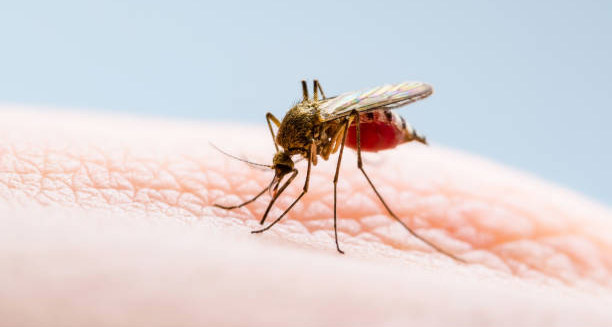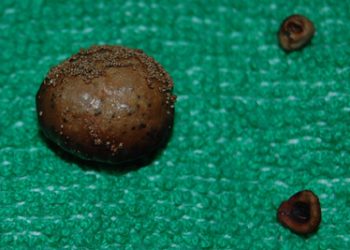The causes of malaria lie in the complex interplay between humans, parasites, and mosquito vectors. Malaria is not caused by a virus or bacterium but by Plasmodium parasites that enter the human body primarily through the bite of an infected mosquito.
Although malaria is common in tropical areas and places with poor sanitation, its real roots come from biological and environmental conditions. These include the behaviour of mosquitoes, human habits, and how easily mosquitoes can breed.
Understanding the Causes of Malaria helps people and health authorities take better action to prevent and control the disease.
1. The Plasmodium Parasites
The main Causes of Malaria are five species of Plasmodium parasites. The deadliest of these is Plasmodium falciparum. Each species causes different types of illness:
- Plasmodium falciparum – Common in Africa; leads to severe illness and high death rates
- Plasmodium vivax – Found in Asia and South America; can stay hidden in the liver and cause future flare-ups
- Plasmodium ovale – Less common; mostly in West Africa; also able to stay dormant and return later
- Plasmodium malariae – Seen worldwide; usually causes long-lasting but mild infections
- Plasmodium knowlesi – Found in Southeast Asia; spreads from monkeys to humans and progresses quickly
These parasites attack red blood cells, multiply inside them, and make them burst. This process causes fever, chills, and anaemia — the classic symptoms of malaria.
2. Transmission via Mosquitoes
The most common way people get malaria is from a bite by an infected female Anopheles mosquito. These mosquitoes are strong carriers because:
- They bite mostly at night (dusk to dawn)
- They prefer to feed on humans
- They breed in still water like ponds, puddles, or rice fields
When a mosquito bites someone with malaria, it picks up the parasite. The parasite grows in the mosquito’s gut and travels to its saliva. Then, when it bites another person, it injects the parasite into their blood — starting a new infection.
Only female Anopheles mosquitoes spread malaria. Male mosquitoes don’t bite people.
3. Rare Human-to-Human Transmission
Although mosquitoes cause most malaria cases, the disease can sometimes pass directly from one person to another. This happens in rare cases like:
- Blood transfusions using infected donor blood
- Organ transplants from a person carrying the parasite
- Shared needles, especially in medical accidents or drug use
- Mother to baby (congenital malaria) during pregnancy
These cases are rare but serious, especially in countries where malaria is not common and screening may be missed.
4. Environmental Causes and Risk Factors
Several environmental and lifestyle factors also support the spread of malaria. These include:
- Warm and wet climates, which help mosquitoes breed
- Poor drainage and standing water around homes
- Farming and deforestation, which create more mosquito habitats
- Rapid urban growth without good sanitation
- Lack of mosquito nets, screened housing, or proper clothing at night
- Limited access to healthcare, delaying diagnosis and treatment
In many low-income regions, people sleep without bed nets, live in homes without screens, and work outside at night — all of which raise their risk of mosquito bites.
5. Weak Prevention Efforts
Poor or broken prevention systems often lead to a rise in malaria cases. Common problems include:
- Too few insecticide-treated bed nets
- Reduced indoor spraying
- Mosquito resistance to insecticides
- Parasite resistance to malaria medicines
- Poor access to clinics for quick treatment
Conflict, natural disasters, or economic trouble can also make prevention harder, increasing the risk of outbreaks.
6. Global Travel and Migration
With more people travelling, malaria sometimes appears in places where it usually doesn’t occur. Travellers from malaria-free countries may visit risky areas, get infected, and bring the parasite home.
If local mosquitoes bite them and spread the parasite, small outbreaks can begin in places that were once malaria-free. Refugees and people escaping crises may also bring malaria across borders when healthcare systems are overwhelmed.
Causes of Malaria in Human Biology
7. Genetic and Biological Factors
Some people have inherited traits that affect their risk of malaria:
- People with sickle cell trait get some protection from P. falciparum
- People who are Duffy-negative are naturally resistant to P. vivax, since the parasite cannot enter their red blood cells
- People with G6PD deficiency may react differently to malaria infections and to certain malaria drugs
These traits developed over time in regions where malaria was common. However, they do not guarantee full protection from the disease.
Summary
The Causes of Malaria begin with Plasmodium parasites, spread by female Anopheles mosquitoes. Yet, many other factors — like environment, poor healthcare, travel, and genetics — also play a role in how the disease spreads and affects people.
Knowing these causes allows better prevention and helps in building strong plans to fight malaria around the world.


